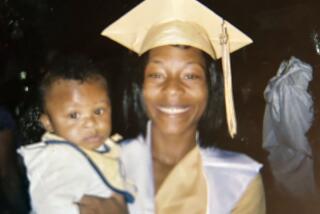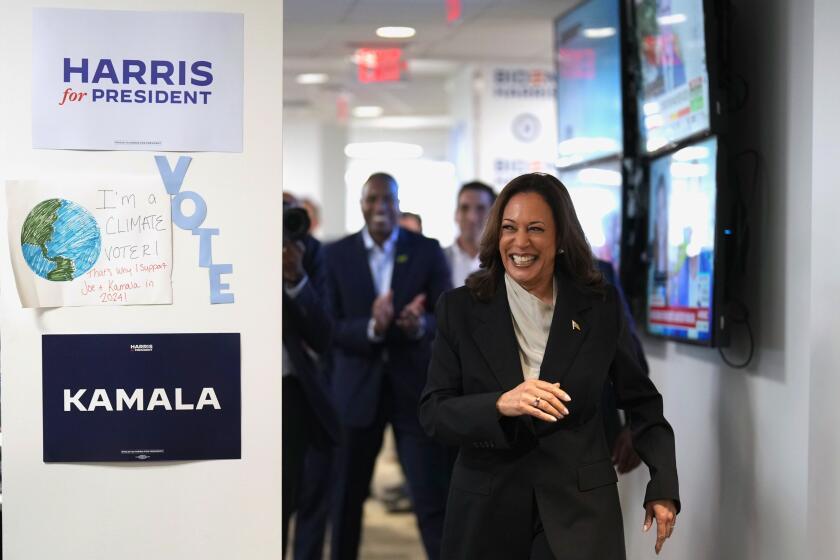UCI Scientists Told Moscow’s Aim Is to Deprive U.S. of Foe
The Cold War is not quite over, but the chill is off, and superpower relations are evolving in an environment of cooperation, a top adviser to Soviet President Mikhail S. Gorbachev said Sunday during a landmark gathering of scientists at UC Irvine.
“Our major secret weapon is to deprive you of an enemy,” said Georgi Arbatov, director of the Soviet Academy of Sciences’ Institute for U.S and Canada Studies.
With relations between the United States and the Soviet Union perhaps warmer than at any period in modern history, the Soviet view of international affairs has changed from one of class struggle to a new global partnership, Arbatov said.
Once an America-Basher
Arbatov--who is also a member of the Central Committee of the Communist Party--has also evolved, said U.S. scientists, from a one-time America-basher to an influential proponent of improved U.S.-Soviet relations.
Moscow no longer wants to wear the black hat, Arbatov said during a frank speech before Soviet and U.S. scientists at the University Club.
“It’s historical, it’s human, you have to have an enemy,” he said. “So much was built out of this role of the enemy. Your foreign policy, quite a bit of your economy, even your feelings about your country. To have a really good empire, you have to have a really evil empire.”
Arbatov’s message, which was peppered with good-natured reminders of the sins of both nations, echoed the tone of Gorbachev’s address to the United Nations in New York City last week. The Soviet president pledged to reduce his country’s armed forces by 500,000 troops and scrap 10,000 tanks, continue the military withdrawal from Afghanistan and ensure human rights.
Gorbachev Cut Trip Short
Gorbachev, however, cut short his trip because of the earthquake that ripped through Soviet Armenia on Wednesday, killing an estimated 100,000 people.
Several of the 17 scientists who had been scheduled to take part in the 2-day meeting at UCI’s Beckman Center between members of the the Soviet Academy of Sciences and the U.S. National Academy of Sciences also returned home sooner than planned, but Arbatov will spend the scheduled 2 weeks in the United States.
The assembly of scientists contributes to growing world stability, said Frank Press, President of the National Academy of Sciences.
“Science is basically a humanitarian cause,” he said. “Professionals of a similar persuasion are not divided by nations.”
It is the confluence of international events--a new “reality of interdependence”--that makes the partnership of nations vitally important today, Arbatov said.
“For many years we thought the world was split into two hostile camps, and the struggle between these camps, socialist and capitalist, would determine the outcome of world history,” he said.
“But we have changed a lot of perceptions. . . . The world is a fragile entity with a web of interdependence; you have to take into account everybody’s interests. What is important now is not the balance of power, but the balance of interests.”
Responding to a question, Arbatov said national borders are opening to international concerns. “Sovereignty is not a holy cow,” he said. “If you enter an agreement, you give up a part of your ‘sovereignty.’ ”
In an interview following his speech, Arbatov said warmer relations between the superpowers have come as a surprise under President Reagan, who once called the Soviet Union “the Evil Empire.”
Reagan ‘Open to Change’
“You have to give credit to Reagan, he has turned out to be extremely open to change,” he said. “It is the irony of life. It turned out the only thing which could put Reagan in history as President is improved relations with the Soviet Union.”
He predicted that, barring an unforeseen world crisis, “you can be almost sure that relations will not deteriorate under (President-elect George) Bush. The major question is, will they develop in a substantial way? Will we have a new disarmament agreement or improvement of the world economic situation? How will he address global problems, cooperation with fighting terrorists, the problem of nuclear proliferation?”
Arbatov, a witty, self-effacing speaker, played to an agreeing audience Sunday in his comments on the senselessness of the arms race and the Soviet Union’s changing perceptions of the United States and the world.
‘Return to Common Sense’
He defined perestroika and glasnost --literally translated, reconstruction and openness --as “a return to common sense.”
“The foreign policy under which we had lived for many decades had become surrealistic,” Arbatov said. “You can’t wage a war you can’t win, but you can arm yourselves.”
The effects of this “new political thinking” can already be seen, he said. One of Arbatov’s contributions to international affairs may be a style of superpower negotiations.
“Our model for negotiations was borrowed from the commercial field,” he said. “You ask for as much as possible to start, then you begin to make concessions bit by bit, and then you come to an agreement.”
That system was flawed because it was time-consuming and generated a self-perpetuating bureaucracy, he said. Because barter took place in the arena of world security, it opened leaders up to allegations of betrayal when they did finally accept compromises.
A better model starts with decision-making at the highest level--preferably the Soviet general secretary, Arbatov said. The leader’s studied position should then be presented by negotiators who are instructed to come to an agreement as quickly as possible.
“Long negotiations are not only non-productive, they are counterproductive,” Arbatov said.
He claimed greater success with expedited talks and used as an example the Intermediate Nuclear Force Treaty signed by Reagan and Gorbachev.
“The INF Treaty was made in just such a way,” Arbatov said. “Very quickly in 2 weeks we had a test ban treaty.”
More to Read
Sign up for Essential California
The most important California stories and recommendations in your inbox every morning.
You may occasionally receive promotional content from the Los Angeles Times.






